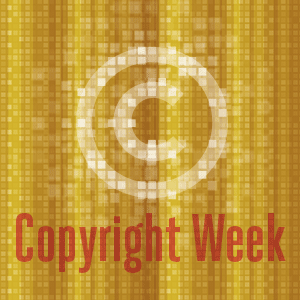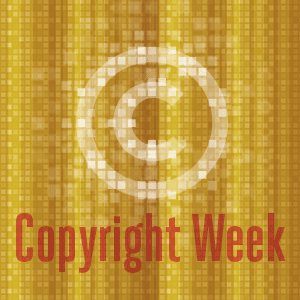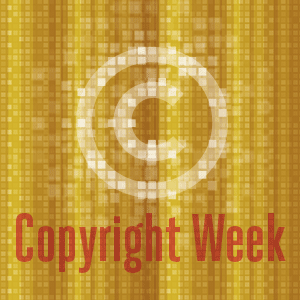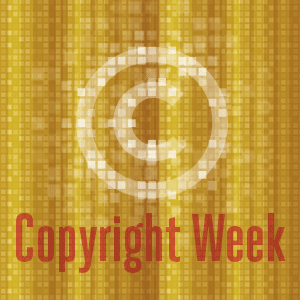Over the past two years, as talk of copyright reform has escalated, we’ve also heard complaints about the supposed expansion of fair use, or “fair use creep.†That kind of talk woefully misunderstands how fair use works.
Fair use provides breathing space in copyright law, making sure that control of the right to copy and distribute doesn’t become control of the right to create and innovate. New technologies and services depend on the creation of multiple copies as a matter of course. At the same time, copyright terms cover works many decades old and copyrighted software appears in more and more devices. Taken together, these developments mean the potential reach of copyright may extend ever further. Fair use makes sure that the rights of the public expand at the same time, so add-on creativity and innovation can continue to thrive. In other words, “fair use creep†is an essential corollary to “copyright creep.â€
Tag Archives: Copyright
New Laws and Guidelines Help Secure Your Right to Tinker
It’s Copyright Week
It may seem odd to say so during Copyright Week, but copyright in itself isn’t very important. Sure, EFF expends a lot of time and energy arguing about copyright law, and some of our adversaries spend even more. But we don’t do so because copyright has any independent value. Rather, its value is derived from its ability to “promote the Progress of Science and useful Arts†(in the words of the US Constitution), as well as to promote other important values such as the rights to freedom of expression, privacy, education, and participation in cultural life.
Conversely, the menace of copyright law lies in its potential, when enacted or applied without due balance, for it to subvert those very values. When copyright monopolies are misused to attack the rights or hinder the freedoms of users, we often instinctively turn to copyright law for a remedy—but just as often, we may not find it there. (Fair use, although important, only goes so far.)
That’s when we need to turn to other areas of law for recourse, including competition or antitrust law, consumer protection law and privacy law. We can also look outside the law altogether, to norms and technology that can also help rebalance the interests of copyright owners with those of users; for example open access policies, and (so far as the law allows) circumvention tools.
Who Will Own the Internet of Things? (Hint: Not the Users) | Electronic Frontier Foundation
It’s copyright week…
From phones to cars to refrigerators to farm equipment, software is helping our stuff work better and smarter. But those features come at a high hidden cost: the rapid erosion of ownership. Why does that matter? Because when it comes to digital products, owners have rights. Renters on the other hand, have only permission.
The source of the problem is simple: copyright. You may own your device, but your use of the software in it is usually governed by the terms of an End-User License Agreement (or EULA). And that license agreement is likely to restrict your ability to tinker with your stuff. Typical clauses forbid reverse-engineering (e.g., figuring out how the software works so you can adapt it), transfer (e.g., giving it to a friend or selling it on the secondary market), and even using “unauthorized†repair services at all.
Further complication: the software may be saddled with digital locks(aka Digital Rights Management or DRM) supposedly designed to prevent unauthorized copying. And breaking those locks, even to do something simple and otherwise legal like tinkering with or fixing your own devices, could mean breaking the law,thanks to Section 1201 of the Digital Millennium Copyright Act.
And then there’s repair-manual lockdown, which happens when manufacturers refuse to publish crucial repair information (including the manuals themselves, but also things like diagnostic codes for cars)—and then threaten to sue anyone else who tries to do so with a lawsuit for copyright infringement.
The end result: fair uses are impeded, users are disempowered and trained to go hat in hand to the Apple store just to change a battery (rather than doing it themselves). Users are forced to make do with DRM-crippled devices that are fundamentally defective and compromise our security.
Who Will Own the Internet of Things? (Hint: Not the Users) | Electronic Frontier Foundation.
It’s Copyright Week: Let’s Take Copyright Back
[The EFF is] taking part in Copyright Week, a series of actions and discussions supporting key principles that should guide copyright policy. Every day this week, various groups are taking on different elements of the law, and addressing what’s at stake, and what we need to do to make sure that copyright promotes creativity and innovation.
All around the world, copyright policy is on the agenda. In the United States, lawmakers are nearly two years into a process that promises to lead to the “Next Great Copyright Act.” In Europe, parliamentarians are re-examining some of the basic elements of the “Information Society Directive.” In Australia, the Law Review Commission and the Attorney General are butting heads about which direction to take reform. And through all this, courts and companies are changing the way we think about our relationship to media and technology.
Internet users need to be part of that discussion.
It’s Copyright Week: Let’s Take Copyright Back | Electronic Frontier Foundation.
Where Copyright Fails, Open Licenses Help Creators Build Towards a Future of Free Culture
One of the convictions that drew law professor and former EFF board member, Lawrence Lessig, to co-found Creative Commons was that a narrow and rigid application of copyright law made no sense in the digital age. Copying digital information over long distances and at virtually no cost is what the Internet does best; indeed, it wouldn’t work at all if copying wasn’t possible.
If all online copying requires permission—a worldview that Lessig has termed permission culture— then a huge part of our modern systems for conveying and creating knowledge will always require explicit and prior permission to operate to avoid risk of future lawsuits. It is permission culture that leads to absurd results such as the criminal charges levied against Diego Gomez for sharing an academic publication with colleagues online.
Creative Commons—and by extension, the broader open access movement that often relies on Creative Commons licenses—pushes back against this worldview, in favor of an alternative vision of free culture, in which creative and knowledge works are freely exchanged, and where demanding permission for re-use and sharing can be the exception, rather than the rule.




